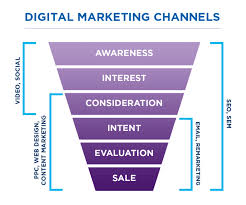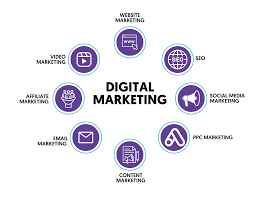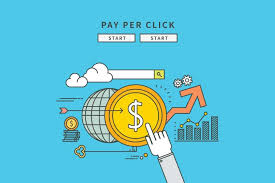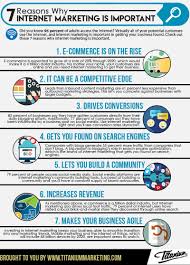The Basics of Digital Marketing for Beginners
Digital marketing can seem like a complex and daunting world, but it doesn’t have to be. Whether you’re a small business owner, a marketing enthusiast, or simply curious about the digital landscape, this guide is here to help you understand the fundamentals of digital marketing.
What is Digital Marketing?
Digital marketing encompasses all online strategies and tactics used to promote and sell products or services. It includes various channels such as websites, social media, email, search engines, and more. The goal of digital marketing is to reach and engage with potential customers in the online space.
Key Components of Digital Marketing
Here are some essential components of digital marketing:
- Website: Your website is your online storefront. It should be user-friendly, visually appealing, and optimised for search engines.
- Social Media: Platforms like Facebook, Instagram, Twitter, and LinkedIn are powerful tools for building brand awareness and engaging with your audience.
- Email Marketing: Sending targeted emails to your subscribers can help nurture leads and drive conversions.
- SEO (Search Engine Optimisation): Optimising your website for search engines can improve its visibility in search results and drive organic traffic.
- PPC (Pay-Per-Click) Advertising: Running targeted ads on platforms like Google Ads can help you reach your target audience quickly.
Tips for Getting Started in Digital Marketing
If you’re new to digital marketing, here are some tips to help you get started:
- Educate Yourself: Take advantage of online resources like blogs, courses, and webinars to learn more about digital marketing strategies.
- Create a Plan: Define your goals, target audience, and budget before diving into digital marketing activities.
- Track Your Progress: Use analytics tools to monitor the performance of your campaigns and make data-driven decisions.
- Stay Updated: The digital landscape is constantly evolving. Stay informed about industry trends and updates to stay ahead of the curve.
In Conclusion
Digital marketing may seem overwhelming at first glance, but with the right knowledge and approach, anyone can navigate this dynamic field successfully. By understanding the key components of digital marketing and following best practices, you can leverage the power of online channels to grow your business or personal brand effectively.
If you’re still feeling unsure about where to start with digital marketing, don’t hesitate to seek guidance from professionals or agencies who specialise in this area. Remember that continuous learning and adaptation are key to thriving in the ever-changing world of digital marketing.
Digital Marketing for Beginners: 9 Essential Tips to Boost Your Online Strategy
- Understand your target audience
- Create a strong online presence with a professional website
- Utilize social media platforms for marketing purposes
- Implement search engine optimization (SEO) strategies to improve visibility
- Engage with your audience through valuable content creation
- Use email marketing to nurture leads and build relationships
- Track and analyse data to make informed decisions
- Stay updated on digital marketing trends and best practices
- Experiment with different strategies to find what works best for your business
Understand your target audience
Understanding your target audience is a crucial aspect of digital marketing for beginners. By identifying who your ideal customers are, their preferences, behaviours, and needs, you can tailor your marketing efforts to resonate with them effectively. This knowledge allows you to create content that is relevant and engaging, choose the right channels to reach your audience, and ultimately drive conversions. Investing time in understanding your target audience will not only improve the success of your digital marketing campaigns but also build stronger relationships with potential customers.
Create a strong online presence with a professional website
Creating a strong online presence with a professional website is essential for any business looking to succeed in the digital age. Your website serves as the virtual face of your brand and is often the first point of contact for potential customers. A well-designed and user-friendly website not only enhances credibility but also helps to showcase your products or services effectively. By investing in a professional website, you can establish trust with your audience, improve brand visibility, and ultimately drive conversions. Remember, your website is a powerful tool that can significantly impact your digital marketing efforts and overall business success.
Utilize social media platforms for marketing purposes
In the realm of digital marketing for beginners, a crucial tip is to harness the power of social media platforms for promotional activities. With billions of active users across various platforms like Facebook, Instagram, Twitter, and LinkedIn, social media offers an unparalleled opportunity to connect with your target audience, build brand awareness, and drive engagement. By crafting compelling content tailored to each platform’s unique features and audience preferences, businesses can effectively leverage social media as a cost-effective and impactful marketing tool to boost their online presence and reach potential customers.
Implement search engine optimization (SEO) strategies to improve visibility
To enhance your online presence and attract more organic traffic to your website, it is crucial to implement search engine optimization (SEO) strategies effectively. By optimising your website with relevant keywords, high-quality content, and user-friendly design, you can improve its visibility in search engine results pages. SEO helps search engines like Google understand the relevance of your site to users’ queries, ultimately driving more targeted traffic to your digital assets. By focusing on SEO best practices, you can increase your online visibility and reach a wider audience interested in your products or services.
Engage with your audience through valuable content creation
Engaging with your audience through valuable content creation is a fundamental aspect of successful digital marketing. By creating content that is informative, entertaining, or inspiring, you can establish a meaningful connection with your target audience. Whether it’s through blog posts, social media updates, videos, or infographics, providing valuable content not only attracts and retains the attention of your audience but also positions you as an authority in your industry. Remember to tailor your content to address the needs and interests of your audience to foster engagement and build long-lasting relationships.
Use email marketing to nurture leads and build relationships
In the realm of digital marketing, utilising email marketing can be a powerful strategy for nurturing leads and establishing strong relationships with your audience. By sending targeted and relevant content to your subscribers, you can keep them engaged, provide value, and guide them through the buyer’s journey. Email marketing allows you to personalise your communication, build trust with potential customers, and ultimately drive conversions. It serves as a direct line of communication between your brand and your audience, fostering long-term relationships that can lead to increased loyalty and repeat business.
Track and analyse data to make informed decisions
Tracking and analysing data is a crucial aspect of digital marketing for beginners. By monitoring the performance of your campaigns and website, you can gain valuable insights into what is working well and what needs improvement. This data-driven approach allows you to make informed decisions based on real-time information, helping you optimise your strategies for better results. Whether it’s tracking website traffic, email open rates, or social media engagement, analysing data empowers you to adjust your tactics effectively and achieve your digital marketing goals more efficiently.
Stay updated on digital marketing trends and best practices
To excel in digital marketing, it is crucial to stay updated on the latest trends and best practices in the ever-evolving landscape. By keeping abreast of industry developments, new technologies, and consumer behaviours, you can adapt your strategies to remain relevant and competitive. Continuous learning and staying informed about digital marketing trends will not only help you stay ahead of the curve but also enable you to make informed decisions that drive success in your online campaigns.
Experiment with different strategies to find what works best for your business
To excel in digital marketing, it is crucial to experiment with various strategies to determine which ones yield the best results for your business. By testing different approaches across platforms such as social media, email marketing, SEO, and PPC advertising, you can identify what resonates most with your target audience and drives the highest engagement and conversions. Embracing a mindset of continuous experimentation and adaptation allows you to refine your digital marketing efforts over time and maximise the impact on your business’s growth and success.









